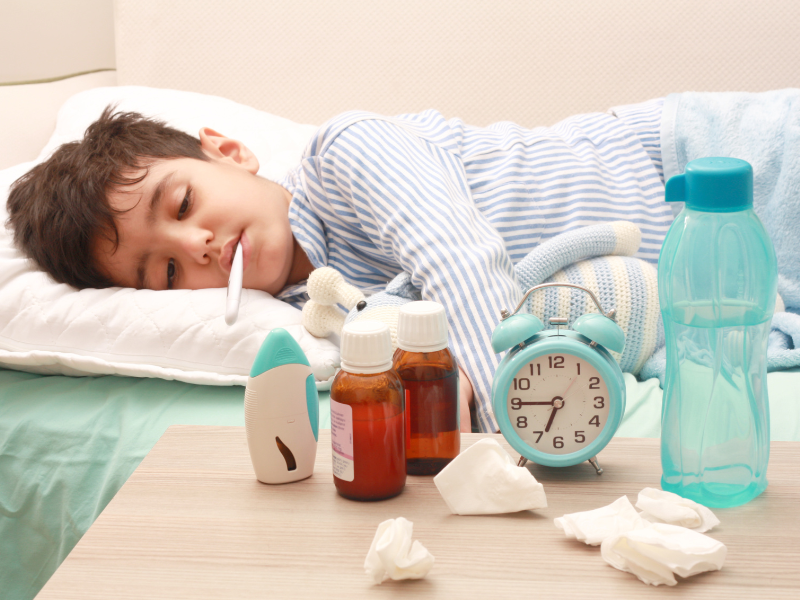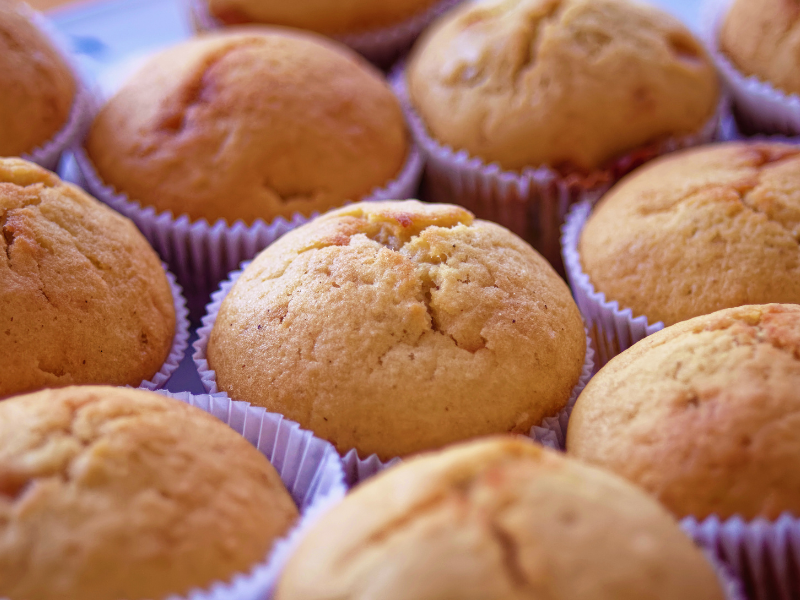Previous Post
Surviving Sniffle Season: Hacks for Keeping Kids Healthy
Posted on September 14, 2025 by Alexandra Pruitt
Winter is coming…which means the parade of runny noses, coughs, and school nurse phone calls is about to begin. If you’re like me, you’ve already got tissues in every bag and a humidifier running like white noise in the background.
Here’s the thing: kids are going to get sick sometimes — that’s just reality, but research (and every pediatrician I’ve ever called in a panic) agrees on this—the basics really do matter. Enough sleep, clean hands, balanced meals, fresh air, and a little preparation go a long way in helping their immune systems stay strong.
I can’t promise a germ-free winter, but I can share what’s actually helped in our house to cut down on sick days — and save at least a few sanity points in the process.
- Prioritize Sleep
- Sleep is the body’s built-in defense system. It’s been said that kids who get fewer than 9 hours of sleep a night are probably twice as likely to catch a cold compared to well-rested kids. Bedtime drama is real, but even small wins — like dimming lights earlier or sticking to the same routine — help their immune systems stay stronger.
- Handwashing (Make It Fun)
- Hands are the biggest culprits when it comes to spreading germs. The CDC estimates that regular handwashing can reduce diarrheal-related illness by up to 30% and respiratory infections by about 20%. That’s a lot fewer sick days. For kids, the trick is making it stick: sing a short song, race the timer, or turn it into a “soap ninja” game. The sillier, the better — as long as the hands end up clean.
- Sneaky Nutrition Wins
- Nutrients like vitamin C (found in citrus, peppers, etc.), vitamin A (found in carrots, spinach, etc.), zinc (found in beans, poultry, etc. ), and antioxidants from berries all support immune defenses. Balanced meals don’t need to be complicated — a smoothie with yogurt and frozen fruit covers a lot of bases and keeps energy steady.
- Fresh Air (Even in Winter)
- Sunlight helps kids produce vitamin D and regulate sleep cycles, while fresh air and movement improve circulation and reduce stress hormones. Even 20 minutes outside can boost mood, sleep, and immune defenses. The bundling hassle is worth it — naps afterward are proof.
- Keep a Parent Survival Kit
- Preparedness makes illness easier to manage. Thermometers track fevers, saline keeps nasal passages clear, and honey (for kids over 1) soothes coughs. Doctor-approved fever reducers on hand mean fewer late-night scrambles. Add fluids and rest, and you’ve got the basics covered.
The Bottom Line on Winter Wellness
Sleep, handwashing, good food, fresh air, and a stocked kit aren’t just “nice ideas” — they’re the real building blocks of immune support. Pediatricians preach these same basics because they work. They won’t prevent every cold (you’ll still find tissues in every pocket), but they give your child the best shot at staying well.
So, take the small wins: an extra hour of rest, clean hands, a tear-free walk. When sickness hits, grab the blankets, keep the fluids coming, and remember — sometimes the most important thing is just being there for them through it all.
Explore More with My Military Lifestyle and Family!
Next Post
Written by
More Military Life Posts











